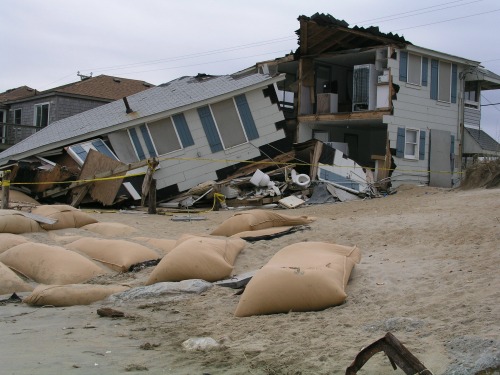
Over 80% of people on this planet live within 100 miles of coastline. Despite attempts at getting the population better prepared, according to FEMA, only 40% of the U.S. population actively prepares. It only takes one hurricane for victims to see how quickly their lives can change.
Hurricanes are nightmarish in terms of the damage they cause and have the capacity to level homes, flood neighborhoods, and cause massive amounts of damage to communities. Those that choose the unpreparedness route gamble with the chance of going head to head with severe flooding, tornadoes, wind and storm damage, and gamble with their family’s lives. This may sound alarmist, but it’s a fact. On a personal note, I have witnessed first hand how unprepared families flock to the stores for last-minute preparations and how grocery markets, superstores, and home depots are quickly overwhelmed and supplies exhausted within hours of restocking. Inevitably, there will be people who walk away from these storms unprepared. Do you want to be a part of this statistic?
Everything You Ever Needed to Know to Prepare for Hurricanes
The time to prepare for this natural disaster is now before any storms are on the horizon. Using this approach is also easier on the pocket-book and will help you prepare with a clear head rather than a panicked one. The best place to start is to find resources, checklists, and advice from experienced professionals. Even asking friends and family what their personal stories of surviving hurricanes are can better prepare you. One of Ready Nutrition’s writers, Jeremiah Johnson wrote about his personal survival story about going through Hurricane Katrina. You can read his words here.
These are essentials you need to prepare for and understand how devastating these types of disasters are.
Preparation
- Get prepared for being off the grid
- 5 reasons you need an emergency fund
- Bugging out with your data
- Preparing your home for a hurricane checklist
- How to board up your windows like a pro
- Turn your car battery into an alternative power source
- The prepared pet
Supplies
- Here’s a checklist for supplies for short-term disasters
- Make a 72-hour bag for each family member
- How to stock a prepper pantry
- Emergency water sources found in the home
- Getting your pet prepared for emergencies
- What will you do when the lights go out?
- Ways to make candles from household objects
Medical Needs
- Emergency medical supply list 1 and list 2
- Commonly overlooked medical needs
- How to store medical supplies
- Pet first aid
Communication
Sanitation
- Make a basic sanitation kit
- How to take a shower after the SHTF
- Women’s health during times of disaster
- What happens when the toilets won’t flush
Evacuation
- Here’s an evacuation checklist
- The prepper’s conundrum: bugging but
- Knowing the signs of when to bug out
- Keep your vehicle evacuation ready
- Roadside medical kit
Don’t Be Another Statistic
Now that you understand what we’re dealing with, there are ways you can use this information to prepare for the next event so that you will be a part of the population that is ready for what may come.
Ultimately, you are the only one who can best care for your family. Having a stash of your family’s favorite canned or dry goods, a supply of water and a simple medical kit can maintain your basic needs for a short-lived disaster. This simple preparedness supply could set you apart from the unprepared.
If you live in a highly-populated area, understand that resources will diminish quickly, so preparing beforehand can circumvent this. You can always start out with these basic preparedness items to get through a disaster:
- Food and alternative ways to cook food
- Water – 1 gallon per person/per day for consuming only. Plan more for sanitary needs.
- Fuel for generators. Also, consider charcoal for outdoor grills
- Batteries and battery charger
- Flashlights and lanterns
- Generator
- Emergency lighting
- Ice
- Medical supply
- Items for baby needs
- Sanitation supplies


is this where we enter the contest?
I’m sorry but that contest was a few years ago.
I grew up 35 miles south west of New Orleans and lived through many hurricanes. My dad tought me prepping basics and I took it much further. Great article and awesome website.